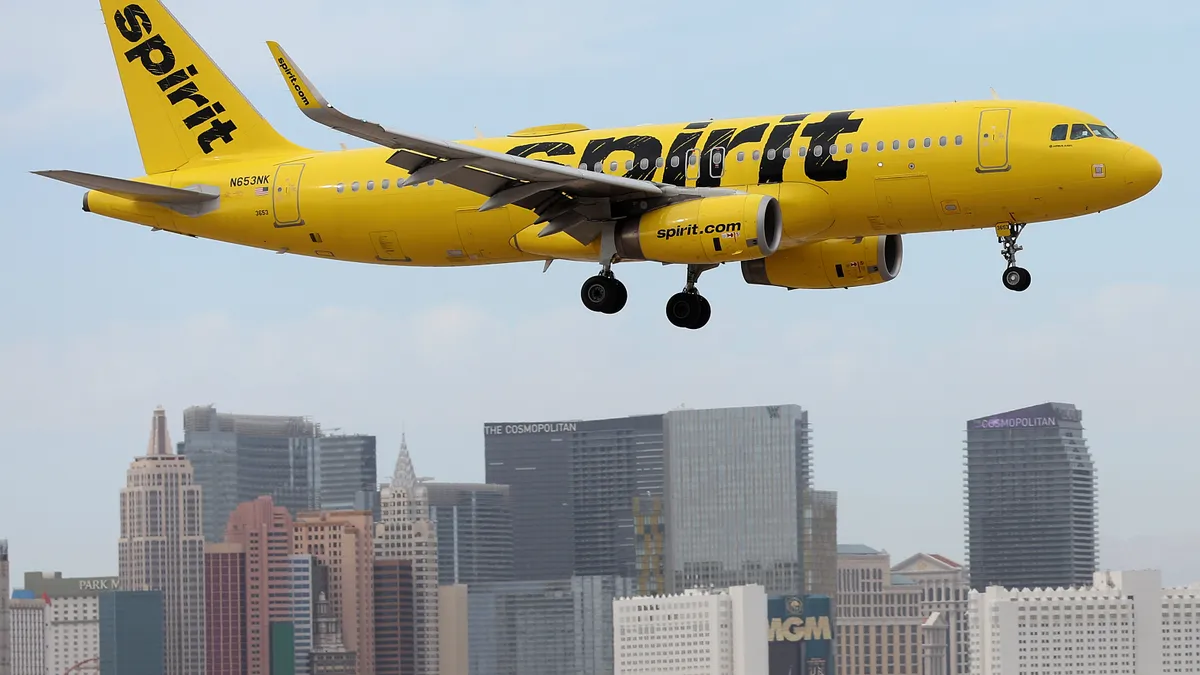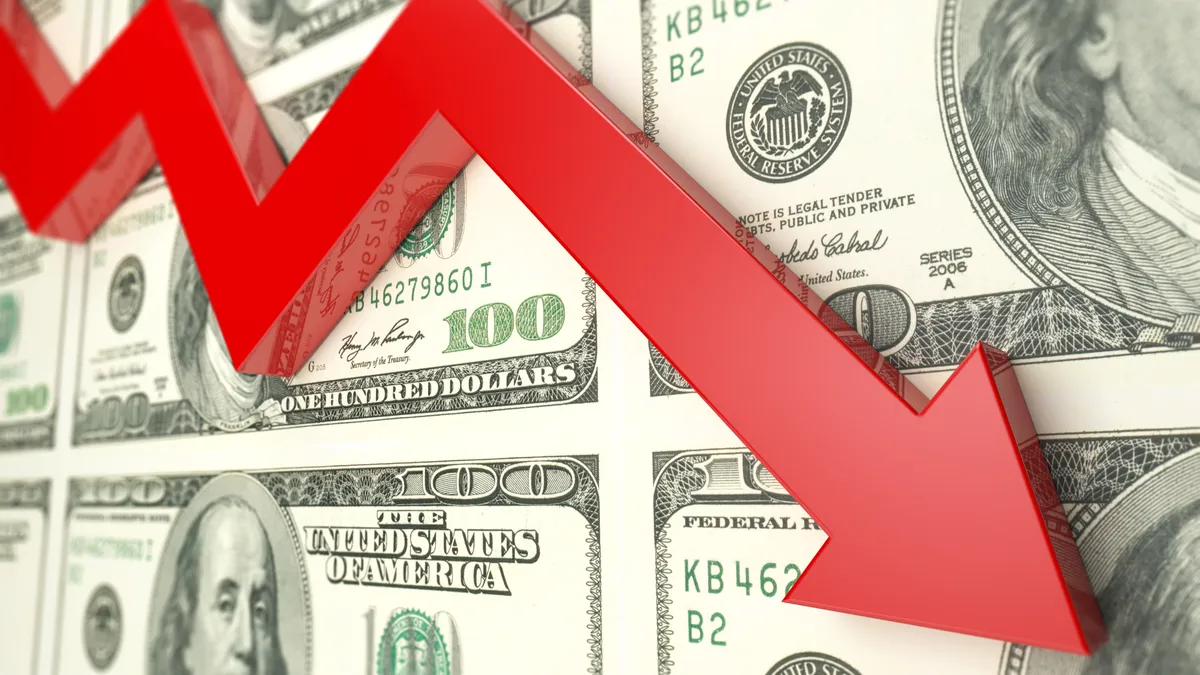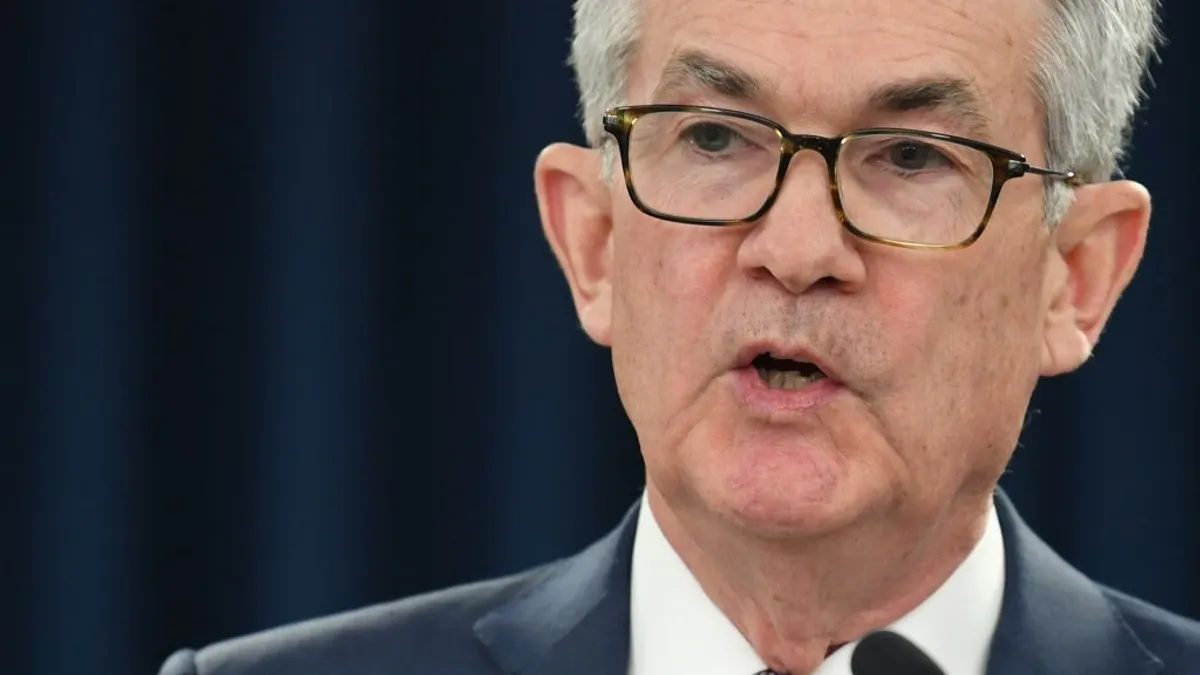Just days ahead of its bankruptcy filing Monday, Spirit Airlines’ board approved $5.4 million in total one-time cash retention awards to five named executive officers, according to a Securities and Exchange filing. The Nov. 12 agreement stipulated the executives must pay the money back if they are no longer employed by Spirit in “good standing” one year after the effective date.
The highest-value retention bonuses are teed up for CEO and President Edward Christie III, at $3.8 million; COO John Bendoraitis at $850,000, and CIO Rocky Wiggins, who is to receive $300,000, according to the filing. CFO Frederick Cromer will get $175,000, the smallest sum of the group.
Retention bonuses are a common tool that distressed companies use to keep executives and management when filing for bankruptcy, particularly when they plan to reorganize and emerge as operating entities, according to Josh Crist, co-managing partner at executive search firm Crist Kolder. “You’re trying to get people to stick around through the bankruptcy,” Crist said in an interview, noting that the gap between the CEO and CFO awards was notably large though he declined to comment on why that might be.
The Dania Beach, Florida-based budget carrier — known for low fares, barebones amenities and sometimes punishingly early flight schedules — filed for Chapter 11 bankruptcy protection Monday, pivoting to reorganize after other efforts, which included mergers, to reduce cost and navigate industry headwinds failed, CFO Dive previously reported.
In a declaration filing, Cromer said a “swift Chapter 11 process” is expected, one that includes a reorganization plan that was agreed to by “consenting stakeholders” who hold approximately 80% of the debt that will be restructured. As of the petition date, the airline had $3.6 billion in total outstanding debt.
Retention agreements like the kind Spirit has offered its top executives are not uncommon, especially for bankrupt companies that have buy-in from debt holders, Crist said. He also said that a second chunk of payments to the executives that are described as 2024 short-term cash incentive program bonuses could be a way of paying or guaranteeing 2024 payment bonuses for the executives in spite of the bankruptcy.
Christopher Ward, co-chair of the bankruptcy and restructuring practice at the Polsinelli law firm and president of the American Bankruptcy Institute, also said it’s routine for companies to enter into management incentive plans prior to a bankruptcy filing. However, under the Bankruptcy Code, plans that incentivize employees or officers to stay through a bankruptcy and assist the debtor must meet certain requirements, which depend on the type of plan.
Whether it’s called a Management Incentive Plan, a Key Employee Incentive Plan or a Key Employee Retention plan (which are more commonly applied to officers and CFOs), all are typically market tested to other comparative companies that have gone through Chapter 11, Ward said. “Most seasoned advisors understand that the incentive program must be market tested and reasonable to pass muster,” Ward said.
As part of the plan each of the named executives received their earned cash bonus under the company’s 2024 STIP for H1 2024 and for H2, unless the officer “ceases to be actively employed by Spirit in good standing prior to the earlier of Jan. 31, 2025 and the date that is 60 days following the date of a ‘change in control,’” according to the filing. At the same time, the filing states that the named executive officers’ unpaid time-based or performance based long-term cash incentive awards and any payment related to Spirit’s short-term incentive plan except for that in the filing yesterday were “forfeited in their entirety.”
Christie is to receive a 2024 STIP bonus of $419,866 on top of the $3.8 million retention award, while Cromer gets a STIP bonus of $277,508 on top of his $175,000 retention award.
Last year Christie’s compensation totaled $6.6 million, including $745,833 in salary, according to an April proxy filing. When the company appointed Cromer, 60, in July his compensation was to include an annual base salary of $610,000, a target bonus of 100% of his annual base salary, a signing bonus of $200,000 and an initial long-term incentive award of $1 million in grant date value, according to a July securities filing.
Spirit did not respond to a request for comment.



















